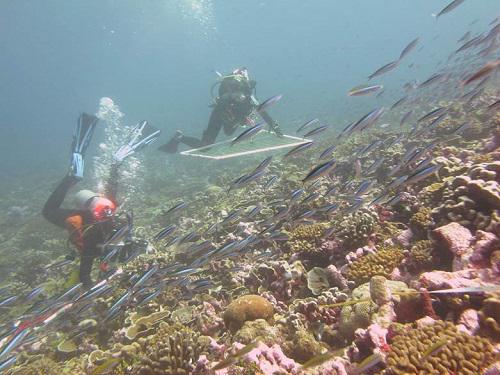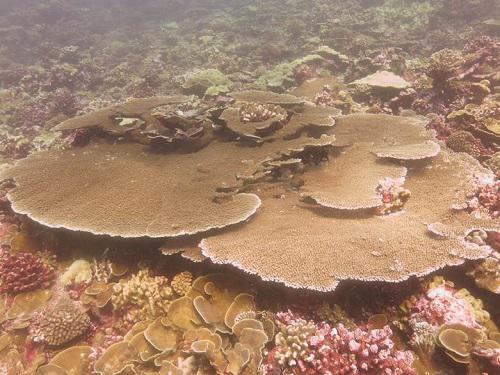Julia K. Baum
Other projects
21 Jun 2017
New Insights about Coral Reef Resilience from the Heart of the 2015 - 2016 El Niño
16 Jul 2019
Ecosystem Consequences and Recovery from a Globally Unprecedented Heat Stress Event
I will conduct the 4th year of coupled socioeconomic-ecological monitoring aimed at understanding how climate change and fishing affect Kiritimati’s reef health and human welfare

Kiritimati, the world’s largest atoll, is home to minimally impacted coral reefs with high coral cover and fish biomass, as well as heavily fished ones. It is part of the Republic of Kiribati, one of a handful of island-nations identified as having high reef dependence, high exposure to impending anthropogenic threats, and low capacity to adapt to these threats. Both climate change and fishing pressure, from Kiritimati’s rapidly growing population, threaten reef health and human welfare on the atoll.

In 2013, I will reassess the status of Kiritimati’s people and coral reefs, following socioeconomic and ecological survey protocols first implemented in 2007. I will work with local fisheries experts and citizens to shape and execute the monitoring program. Ecological monitoring will include underwater surveys of the fish, urchin, and benthic communities conducted using SCUBA at permanent sampling sites around the atoll. Socioeconomic monitoring consists of household surveys about household demographics and capital, as well as fishing activities, and will be conducted in each of Kiritimati’s villages. I will also conduct conservation outreach activities with local communities, and work with Kiritimati fisheries managers and stakeholders to help develop fisheries management and conservation scenarios aimed at sustaining the integrity of the reefs and people’s livelihoods.
With these data, I will assess changes in human well-being and reef health that may have occurred over the past six years. Specifically, I will quantify patterns and variability in human welfare; subsistence, aquarium trade, and shark fin trade fishing pressure; marine ecosystem health (fisheries catch rates, fish and urchin abundance, coral cover). I will then assess how fishing is impacting Kiritimati’s reef communities, the efficacy of current management measures, and the receptivity of the community to alternative measures. This project contributes specific assessments of the threats of fishing and climate change on Kiritimati, potential management solutions, and community outreach, all aimed at moving conservation forward. I will translate findings from these studies and this new project locally through meetings with our Fisheries colleagues and government officials, as well as school talks and education activities. General indicators, models, and potential solutions we find on Kiritimati will be communicated globally through peer-reviewed journal articles and public media communications, as well as through reports to my Kiritimati Fisheries colleagues.